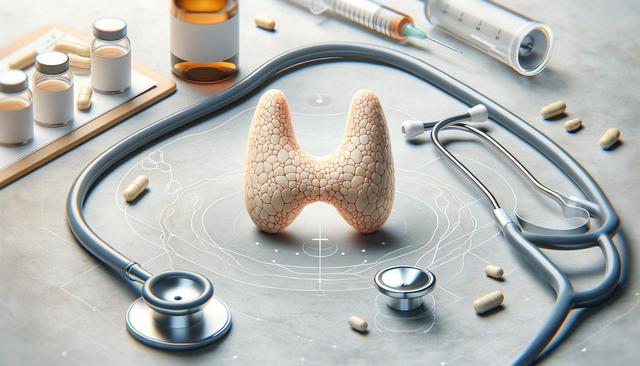Recognizing the Early Signs of Thyroid Issues
Thyroid problems can be subtle at first, but recognizing the early indicators is essential for timely treatment. If you’re wondering how to know if your thyroid is off, there are a few key symptoms to look out for. Among the 3 early thyroid warning signs are unexplained weight changes, fatigue, and temperature sensitivity. These symptoms may seem unrelated, but together they can suggest a hormonal imbalance stemming from thyroid dysfunction.
Some of the 3 signs of thyroid problems that adults often experience include:
- Persistent fatigue, even after a full night’s sleep
- Sudden weight gain or loss without changes in diet or activity
- Dry skin, thinning hair, or brittle nails
Understanding these 3 symptoms of thyroid imbalance can empower individuals to seek medical advice before the condition worsens. Since thyroid issues in adults often develop slowly, early detection is key to managing symptoms effectively.
Common Thyroid Disorders and Their Causes
There are several types of thyroid disorders, each with its own causes and effects on the body. The two most prevalent are hypothyroidism and hyperthyroidism. Hypothyroidism occurs when the thyroid gland doesn’t produce enough hormones, while hyperthyroidism is characterized by excessive hormone production. Both can result in significant changes in bodily functions.
Here are 3 common thyroid disorder signs you should be aware of:
- Changes in heart rate (either too fast or too slow)
- Swelling at the base of the neck (goiter)
- Menstrual irregularities in women
Causes of thyroid disorders include autoimmune diseases, iodine deficiencies, certain medications, and even genetic factors. Understanding what are the 3 signs of thyroid trouble helps frame a conversation with your healthcare provider to identify the underlying issue more quickly.
Diagnosis: How to Know If Your Thyroid Is Off
Getting a proper diagnosis is a vital step in addressing thyroid issues. If you’ve noticed persistent symptoms and are asking yourself how to know if your thyroid is off, a medical evaluation is necessary. Doctors typically begin with a physical examination and a review of your symptoms, followed by blood tests to measure levels of thyroid hormones such as TSH, T3, and T4.
Common diagnostic tools include:
- Thyroid function tests (TSH, Free T3, Free T4)
- Thyroid antibody tests for autoimmune disorders
- Ultrasound imaging to detect nodules or inflammation
These tests help distinguish between different types of thyroid dysfunction and guide the appropriate course of treatment.
Treatment Options for Thyroid Conditions
Once a diagnosis is confirmed, treatment for thyroid issues typically involves medication, lifestyle adjustments, or in some cases, surgery. Hypothyroidism is usually managed with synthetic thyroid hormone replacement, while hyperthyroidism may be treated with anti-thyroid medications, radioactive iodine, or surgery to remove part of the thyroid gland.
Additional strategies that can support treatment include:
- Maintaining a balanced diet rich in iodine and selenium
- Regular physical activity to help manage weight and energy levels
- Stress management techniques such as meditation or yoga
Each case is unique, and working closely with a healthcare provider ensures that the treatment plan is tailored to the individual’s specific condition and lifestyle needs.
Living Well with a Thyroid Condition
Managing thyroid disorders often requires long-term attention, but with the right approach, individuals can lead healthy and active lives. Awareness of the 3 symptoms of thyroid imbalance and consistent treatment adherence play a critical role in maintaining overall well-being. Routine check-ups and blood tests help monitor hormone levels and adjust treatment as necessary.
It’s also important to stay informed about new developments in thyroid care. Talking to your doctor about any changes in symptoms or concerns can help catch issues early and prevent complications. For many adults, understanding the 3 signs of thyroid problems and keeping track of changes in their body enables better self-care and quicker intervention when needed.
While thyroid issues in adults can be complex, proactive management and education are the foundation of effective treatment.
Conclusion: Taking Charge of Your Thyroid Health
Thyroid health plays a fundamental role in energy, mood, and overall function. By recognizing 3 common thyroid disorder signs and knowing how to know if your thyroid is off, individuals can take important steps toward diagnosis and treatment. Whether you’re just noticing potential symptoms or are already managing a thyroid condition, staying informed and connected with healthcare professionals is essential. Early recognition of what are the 3 signs of thyroid trouble can make a significant difference in outcomes and quality of life.




Leave a Reply